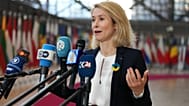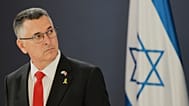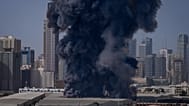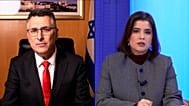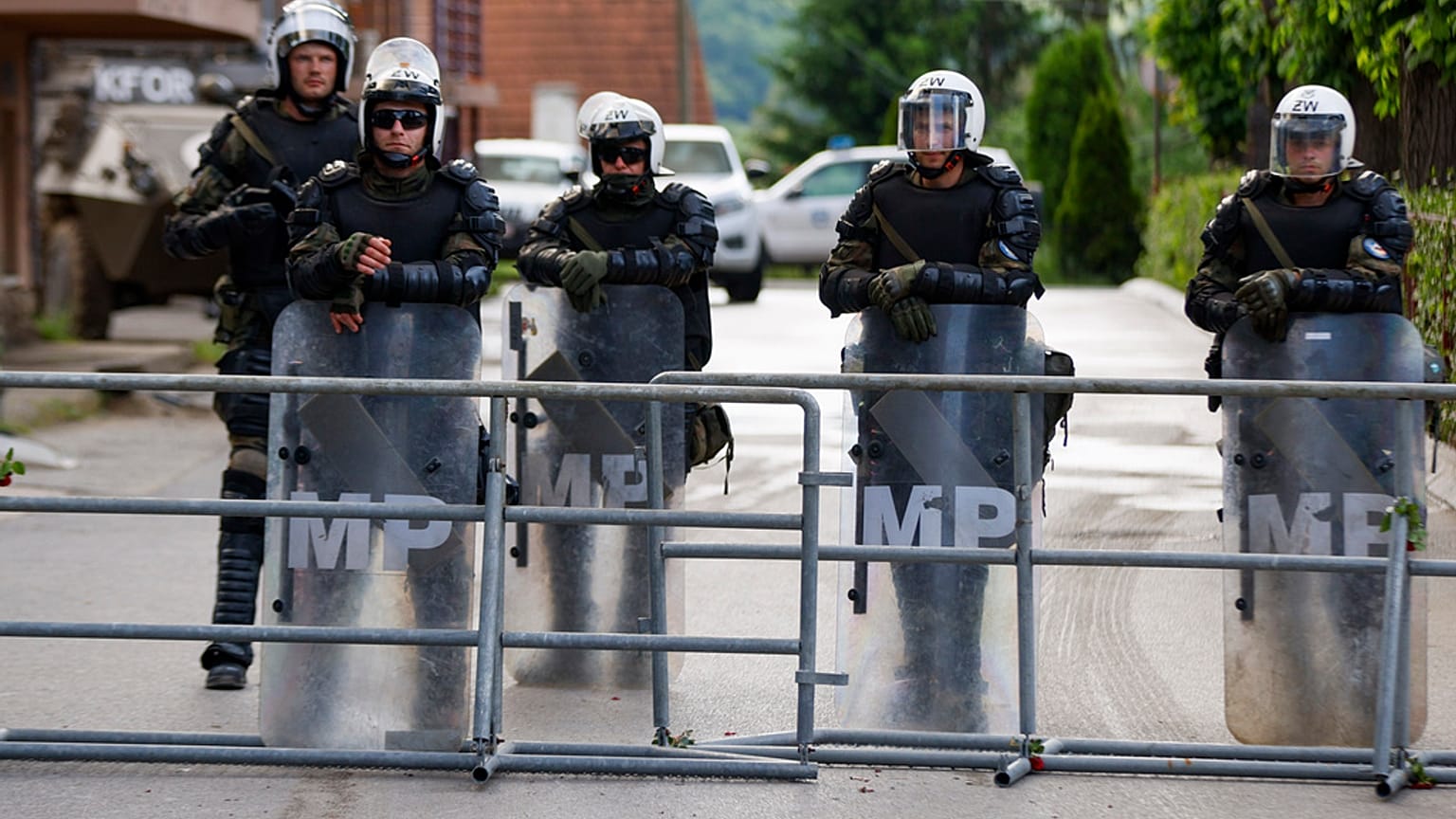NATO chief Jen Stoltenberg warned troops “will take all necessary actions to maintain a safe and secure environment for all citizens in Kosovo.”
Troops from the Nato-led peacekeeping force in Kosovo were seen deployed by metal fences and barbed wire outside a town hall in Leposavic. Meanwhile, in Zvecan, hundreds of ethnic Serbs had gathered in front of the city hall in a peaceful protest.
 ADVERTISEMENT
ADVERTISEMENT
 ADVERTISEMENT
ADVERTISEMENT
The demonstrators reiterated their calls for the Kosovo special police and ethnic Albanian officials they call “fake” mayors to withdraw from northern Kosovo. The crowd then spread a huge Serbian flag.
This latest demonstration comes after NATO said on Tuesday it would send more troops to northern Kosovo to help quell violent protests, following clashes with ethnic Serbs that wounded 30 peacekeepers.
“We have decided to deploy 700 more troops from the operational reserve force for Western Balkans,” NATO Secretary-General Jens Stoltenberg told reporters in Oslo, after talks with Norwegian Prime Minister Jonas Gahr Store.
He said NATO would also "put an additional battalion of reserve forces on high readiness so they can also be deployed if needed. These are prudent steps.”
A battalion typically ranges from 300 to around 1,000 troops. The NATO-led peacekeeping mission, KFOR, currently consists of almost 3,800 troops.
Earlier Tuesday, KFOR peacekeepers used metal fences and barbed wire barriers to beef up positions in a hot-spot northern town.
The troops sealed off the municipality building in Zvecan where unrest on Monday sent tensions soaring, raising fears of instability and a flareup in the Balkan hotspot amid increased Western efforts to resolve a long-simmering dispute.
Kosovo is a former province of Serbia whose 2008 declaration of independence Belgrade does not recognise. Ethnic Albanians make up most of the population, but Kosovo has a restive Serb minority in the north of the country bordering Serbia.
Stoltenberg urged both sides to take steps to de-escalate, refrain from “further irresponsible behaviour,” and return to EU-backed talks on improving relations.
Both Washington and Brussels have stepped up efforts to help solve the Kosovo-Serbia dispute, fearing further instability in Europe amid the war in Ukraine.
The EU has made it clear to both Serbia and Kosovo that they must normalise relations to advance in joining the bloc.
Has Russia commented on the recent unrest?
Russia's Foreign Minister Sergei Lavrov has said rising tensions in Kosovo may lead to a "huge explosion" in the heart of Europe.
Speaking to reporters on Monday, the Russian Foreign Minister said the situation was "alarming" and warned of a major eruption in the Balkans.
Tensions first increased over the past weekend, after ethnic Albanian officials elected in votes overwhelmingly boycotted by Serbs entered municipal buildings.
When the Serbs tried to block them, Kosovo police fired tear gas to disperse the crowd.
In response, Serbia put the country’s military on the highest state of alert and sent more troops to the border with Kosovo. The Serbs protested again on Monday, insisting both ethnic Albanian mayors and Kosovo police must leave northern Kosovo.
The confrontations worsened when Serbs attempted to enter the municipal offices in Zvecan, 45 kilometres north of the capital Pristina.
How have Serbia and the rest of Europe responded?
Serbian Prime Minister Ana Brnabic criticised how international actors were handling events in Kosovo, claiming KFOR is “not protecting the people".
"They are protecting the usurpers,” she said in reference to the new mayors.
“But we must protect the peace. Peace is all we have,” Brnabic added.
Meanwhile, the European Union's top diplomat Josep Borrell condemned the violence saying it was “absolutely unacceptable” and could lead “to a dangerous situation.”
“We have too much violence in Europe already. We cannot afford another conflict,” Borrell told reporters in Brussels.
Borrell said envoys from the 27 EU member countries are “discussing possible measures to be taken if the parties continue to resist proposed steps towards de-escalation.”
He added that he spoke to Kosovo Prime Minister, Albin Kurti and Serbian President, Aleksandar Vucic in the last 24 hours and urged both sides to “urgently take measures to de-escalate tensions immediately and unconditionally.”
As a first step toward calming tensions, he said, Kosovo police should suspend the operation focusing on municipal buildings in the north and violent protestors should “stand down.”
On Monday, the Italian Prime Minister, Giorgia Meloni, expressed her "strongest condemnation of the attack on the KFOR mission".
"What is happening is unacceptable and irresponsible. We will not tolerate further attacks on KFOR," she wrote on Twitter.

